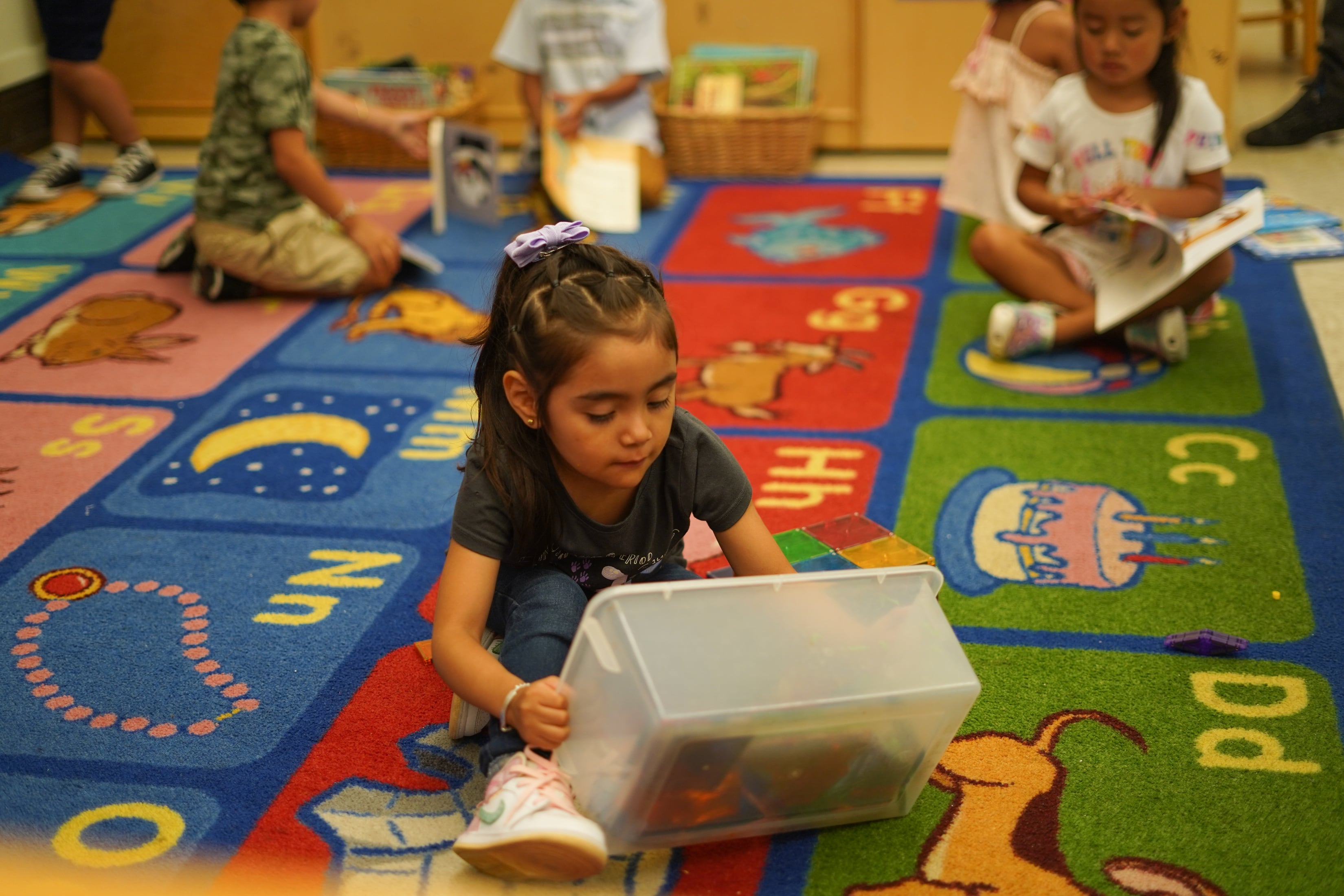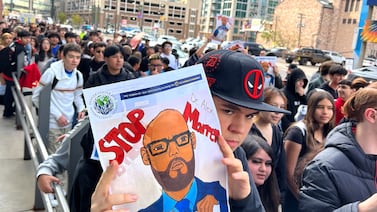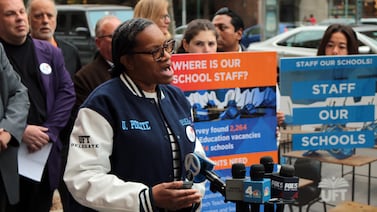Sign up for Chalkbeat New York’s free daily newsletter to keep up with NYC’s public schools.
Last school year, New York City officials issued a new rule for preschools to help working families. Instead of beginning with limited hours to ease students in, they should offer full-day programming on day one.
But a year after those new rules were supposed to take effect, many providers are still defaulting to the phased-in approach, arguing that it is more appropriate to slowly introduce children, who are as young as 2, into a new environment. Others said they were unaware of the change, which was communicated through an internal newsletter.
The disconnect between policy and practice has led to frustration among families, as some schools have made last-minute changes to opening-day schedules in the weeks before the school year is set to begin — an apparent effort to comply with the policy. In other cases, parents are still unsure what the opening days of school will look like.
At P.S. 58 in Brooklyn, the school’s website indicates that preschool children will have “partial day” on Sept. 5 — the first day of school. One mom said she has made several phone calls and emails to see if she needs to line up child care for the afternoon, or if full-day programming will be offered in accordance with city rules.
“We have heard nothing,” said the mom, who requested anonymity for fear of straining her relationship with school officials. She and her husband both work and have no local family to fill child care gaps. “Parents need full-time school,” she said.
Complicating matters, she has yet to hear which of the school’s preschool sites her 4-year-old son will attend, making it impossible to enroll in an after-school program. She fears her husband will have to work part time if they don’t get an after-school slot.
The principal at P.S. 58 did not respond to an email seeking comment. An Education Department spokesperson did not respond to a question about whether P.S. 58 will offer full-day programming on the first day of school.
Many preschools stick with gradual schedule
The move toward full-day programming beginning on the first day of school would represent a shift from a yearslong practice at many public schools, as well as community-based organizations that form the backbone of the city’s free preschool programs for 3- and 4-year-olds. Educators and providers say there are good reasons for that approach.
“Without that phase-in you can see children really crying desperately on the first day of school or even running out of the classroom after their parents down the hallway,” said Helen Frazier, a Brooklyn preschool teacher. “If they associate the early childhood environment with that stress, you can see the lasting effects of that into the fall.”
Beginning last school year, the Education Department updated its handbook for early childhood providers. It now states that “All programs should begin the school year with full days of school to support working families and others.” Families who want their children to begin part time can request that for up to the first three weeks of the school year.
“By offering full day 3K and pre-K from day one, parents and guardians don’t have to make the hard decision to cut critical work hours or pay out of pocket for short term, supplemental childcare,” Education Department spokesperson Chyann Tull wrote in a statement.
In many cases, however, the policy shift has prompted little change in how providers operate. Several community organizations that are still offering a phased-in approach told Chalkbeat they are happy to offer full-day activities for families who need it, as they have in the past. Tull did not directly say whether offering a part-time option as the default violates department policy.
Staci White, the early childhood director at St. Nick’s Alliance, a Brooklyn community organization that operates preschool programs, said they typically begin phasing students into the classroom to meet their teachers before the traditional school year begins. She’s planning to offer a half day on the official first day of school with a full school day offered on day two.
“I realize that it may not be what is in a policy statement,” she said. “But a lot of what the Department of Education puts out are policy statements that are not in the best interests of the students, staff, or families and the communication of it is often very vague.”
Last year, she said the organization offered full-day programming beginning on the first day to align with the new policy, but no families took them up on it. “We do accommodate families if they say they don’t have another option,” she said.
Children’s Aid — which operates nine early childhood centers across the Bronx, Manhattan, and Staten Island — is also planning to launch with a phased-in schedule this fall. Before the school year starts, the organization’s staff typically conduct social-emotional assessments and home visits as part of a “soft on-ramp to school,” said Moria Cappio, the organization’s chief of staff.
The first day of school is typically a couple hours and families are invited to join their children in the classroom. By the fourth day of school, students are usually on a full-day schedule.
“Just dropping your kid at the door and not seeing your parent for six hours just doesn’t work for every kid,” Cappio said. Although the organization can accommodate families who want full-day programming right away, Cappio said they often work with families on an individual basis to figure out the right approach for their child.
One former Education Department official, who worked in the early childhood division under former Mayor Bill de Blasio, said the scattershot implementation of the full-day policy may reflect an overhaul of the division that began under Deputy Chancellor Kara Ahmed, who recently left the role.
“In a lot of the downsizing of the division of early childhood over the last couple years, I have to imagine that a lot of that policy infrastructure isn’t there anymore,” said the former staffer, who spoke on condition of anonymity to discuss the current administration’s policies. “This is probably a very visible symptom of that.”
The city’s teachers union is also pushing to overturn the new rules. Karen Alford, the union’s vice president for elementary schools, said in a statement that the union had voiced concern to Ahmed over the requirement to offer full-day programming right away.
“It was never a developmentally sound decision,” Alford wrote. “We hope now, with the change in leadership in the city’s Early Childhood programs, that we can revisit this policy.”
In the meantime, some families are feeling uneasy about beginning the school year with a full day of programming.
Brooklyn mom Stephanie Leal assumed her 3-year-old daughter’s community-based preschool would begin with a phased-in model and requested off work to accommodate that. But the school recently told her that they would offer full-day programming right away.
“I’m feeling a little nervous,” said Leal, who is a member of the advocacy group New Yorkers United for Childcare. Though her daughter has been in daycare since she was 15 months old, this will be “a little bit more of a school setting and she won’t be one of the oldest anymore.”
Still, she said defaulting to full-day programming seemed like the right citywide policy choice for families whose work schedules are less flexible.
“I do think that’s the right thing to do,” she said. “Children are fairly resilient and they will adapt.”
Alex Zimmerman is a reporter for Chalkbeat New York, covering NYC public schools. Contact Alex at azimmerman@chalkbeat.org.







